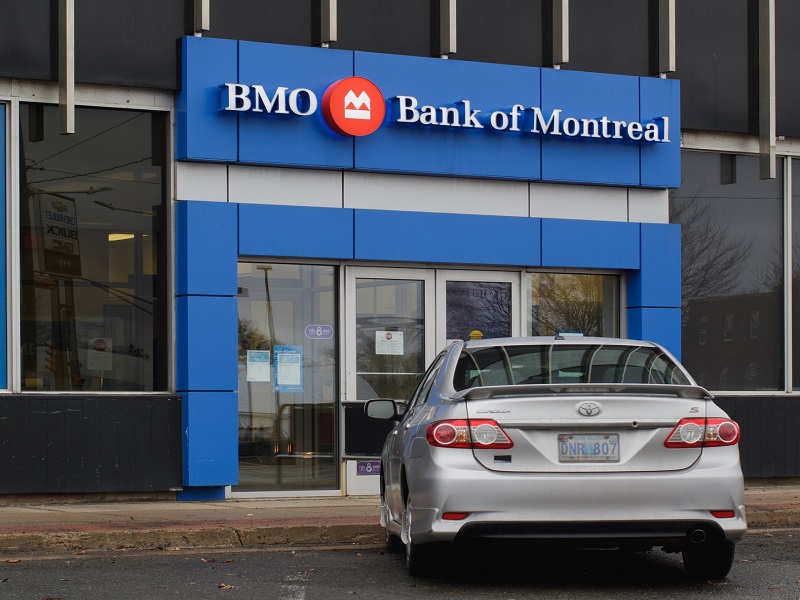
BMO Financial Group shares came under pressure after the bank reported results that missed expectations on higher loan-loss provisions and U.S. growth issues.
The bank, which significantly expanded its U.S. presence early last year with its US$16.3-billion Bank of the West acquisition, said the results reflect a challenging environment there along with pressure on Canadian borrowers from higher interest rates.
BMO is managing through the credit risk, but it is elevated from last quarter, said chief executive Darryl White.
“Some individuals and businesses are being impacted by prolonged higher interest rates and a slowing economy,” he said on an earnings call on Wednesday.
In the U.S., the banking industry has been under pressure since March last year amid more muted loan growth and intensified deposit competition, he said.
The combination of pressures led BMO to report a profit of $1.87 billion in its latest quarter, up from $1.03 billion a year earlier when results were affected by charges related to the Bank of the West acquisition.
On an adjusted basis, BMO says it earned $2.59 per diluted share, down from an adjusted profit of $2.89 per diluted share in the same quarter last year.
Analysts on average had expected a profit of $2.77 per share, according to LSEG Data & Analytics.
BMO shares were trading down $8.59, or 6.55%, to $122.51 as of mid-morning on the Toronto Stock Exchange, despite raising its quarterly dividend by four cents to $1.55.
The miss came as BMO’s provisions for credit losses for the quarter amounted to $705 million. The total was down from $1.02 billion a year ago when it took an initial provision of $705 million related to the loan portfolio at Bank of the West.
Much of last year’s increase was on provisions of performing loans, which is more automatically taken on loans as a precaution. This past quarter though saw growth largely in provisions on impaired loans, where the bank has seen a deterioration of credit quality and can no longer expect a full payback of the loan.
Provisions on impaired loans totalled $658 million, up from $243 million last year.
Impaired losses included $247 million from Canadian personal and business banking, up $44 million from last quarter, as increasing credit card delinquencies and elevated consumer insolvencies weighed, said chief risk officer Piyush Agrawal on the call.
He said the bank expects impaired provisions to stay around current levels for the next couple of quarters on slower Bank of Canada rate cuts, which is having a bigger effect on consumers than some had expected.
“You have the exogenous factor of Canadian insolvencies or proposals that have been and continue to be surprisingly higher than general expectation,” said Agrawal.
In the U.S., provisions totalled $288 million, including pressure from the trucking sector that has been struggling for some time, he said.
“For the last 18 months, you’ve seen freight rates have remained at an all-time low, volumes haven’t picked up. If you look at the American tonnage index, that’s been at a low point. And resell values, because of oversupply, have also been impacted.”
Overall, impaired provisions were 25% higher than what analysts had expected, said Scotiabank analyst Meny Grauman.
“The ‘higher-for-longer’ rate scenario is a reality, and appears to be impacting credit performance more that the Street, or frankly management teams, had expected,” he said in a note.
“The question is where do (provisions for credit loss) expectations go from here and the reasonable answer is higher.”
Overall, bank revenue totalled $7.97 billion, up from $7.79 billion in the same quarter last year.
BMO’s Canadian personal and commercial banking business earned $872 million in the quarter, up from $819 million in the same quarter last year, while the bank’s U.S. personal and commercial banking operations earned $543 million, down from $731 million.
The bank’s wealth management business earned $320 million, an increase from $240 million a year earlier. BMO’s capital markets business earned $459 million, up from $370 million.
BMO’s corporate services segment reported a loss of $328 million in its second quarter compared with a loss of $1.13 billion in the same quarter last year.